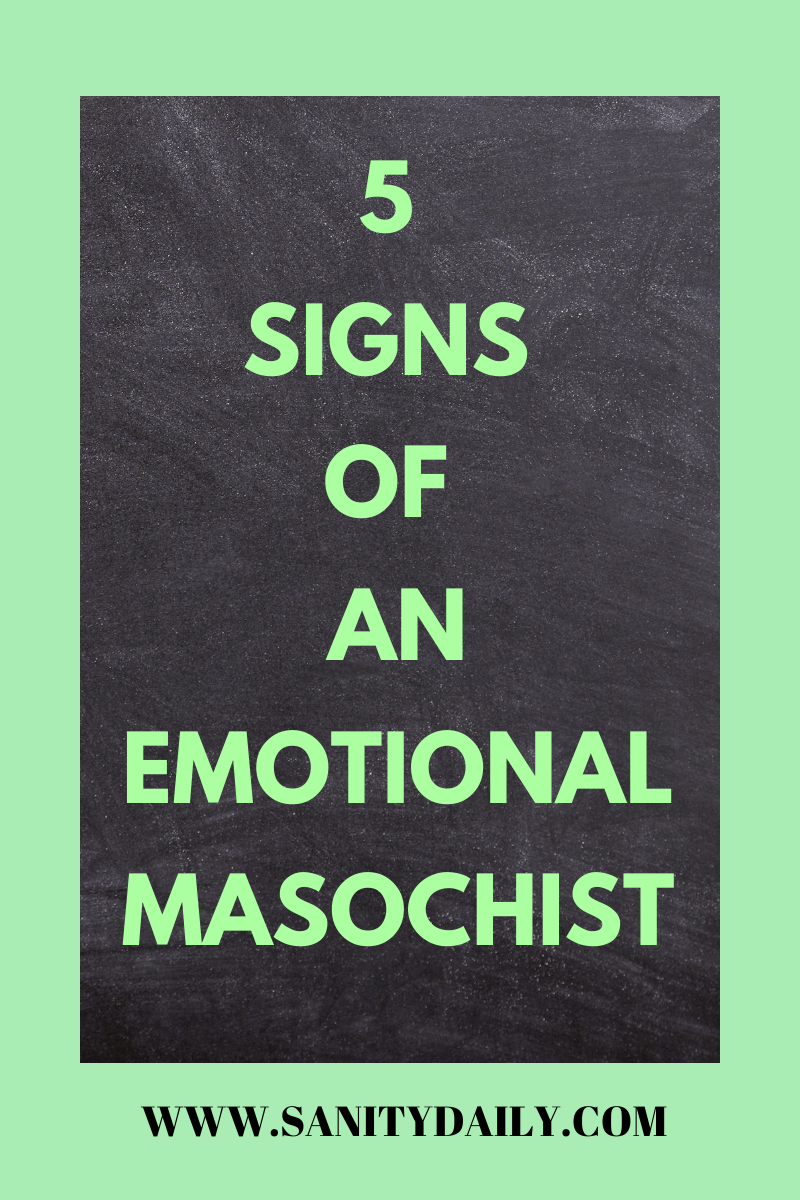Who is an emotional masochist? Can someone really find pleasure in pain? Can someone like being in that self-inflicted zone of dismay and sorrow? Emotional Masochism is like an emotional attachment to your pain. Sometimes it is a forced choice or sometimes it is an unconscious choice, and for some people, it just becomes a pattern hard to break.
In this blog, let us try to understand some signs of an emotional masochist and see if we can identify any one of them around us.
Who is an Emotional Masochist?
Can pain become a habit? Can pain and sorrow feel like home? Will you believe that some people can’t help but somehow like it being there, in the dark zone, in the pain. They keep on rewinding the bad incidents in their mind and stay associated with their bad memories. They can anytime access their traumatic experiences and indulge in it, soak in all the negativity and be sad about it.
It is also called finding subconscious pleasure in emotional negativity. An incident or experience we don’t appreciate or like but cannot detach ourselves from it, masochist sometimes like it being there and they start relating/familiarising with that pain, and even worse they self-sabotage themselves.
Stepping over the same sharp stone, again and again, hurts us, but after some time we exactly become aware of the amount of pain it will cause for us, and then we no longer fear the pain, we get through it by actually going through it again and again, now just replace the physical pain with the amount of emotional pain one person goes and that’s how masochists see and feel the pain.

5 signs of an emotional masochist
It is not really hard to identify a masochist around you, we all become one sometimes. We over-stretch, get into unnecessary arguments, nag, and overreact over things. We know that all this will cause irritation, hurt, and trouble but still we find it hard to resist the urge of reacting and letting it go.
Now, when an element of emotion gets mixed with masochism it becomes a little more vulnerable. It directly affects your mental health if you deeply internalize it in your system. If you make it a habit of picking up fights, getting into avoidable arguments, repeating the same traumatic episode, recalling disturbing memories, and thinking about them.
All this and a lot more are the signs of emotional masochism. Here is how you can identify if you are one of them or if you know someone, please try to bring some awareness and help them overcome it.
1.) An emotional masochist will go back to the person who causes them emotional pain
We have seen this in relationships, wherein a partner in spite of being hurt and betrayed keeps on going back to the same person. Some people are attracted to relationships that aren’t going to work, still they continue.
2.) An emotional masochist will deliberately do sad things and soak in the pain
Like listening to sad songs, sitting with a cup of coffee or tea may be recalling a particularly bad event. Replaying the same stories that cause a lot of pain and sadness inside.
3.) An emotional masochist will not define boundaries with toxic people in their life
As they seek pleasure in pain, they hardly define boundaries, rather they keep on crossing those boundaries and knock on the doors of possible arguments and disagreements.
4.) An emotional masochist will dwell into negative self-talk and self-criticism
Are you someone who keeps on criticizing yourself? Do you dwell in negative self-talk? How does it help you? You feel more sad and worried, isn’t it? Your inner-dialog changes the way you see yourself.
5.) An emotional masochist will hold grudges and fight over the same things again
Many of us will conveniently avoid situations wherein there is a possibility of a quarrel but an emotional masochist will bring out the past time and time again, speak the same thing and cry over the same pain.
To conclude, I would say that masochism is not a mental disorder but masochism is a self-defeating personality disorder. Choosing bad over good, sadness over happiness, and ending up in situations leading to disappointments, failures, and grudges, even when they had better options to choose.
So if you are one of them, take time to reflect and help yourself, speak to someone and if you see someone being a self-defeating person, get them help.









